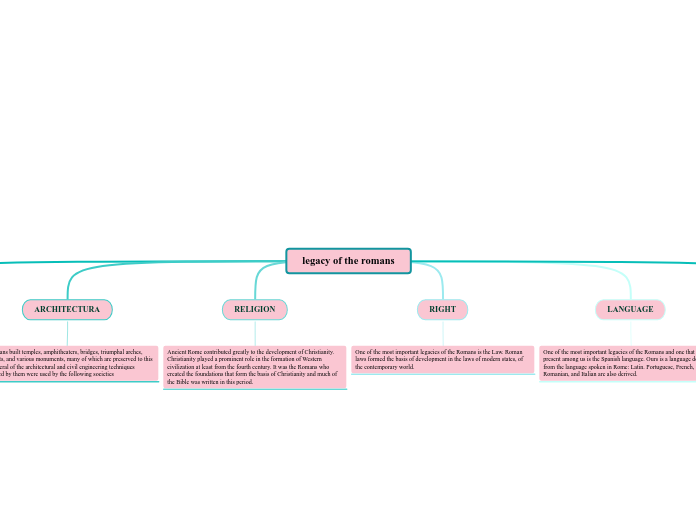legacy of the romans
POLITICS
The idea of the Republic and its institutions, such as the Senate and the Assemblies, instituted by the Romans, formed the basis of the political organization of most states in the world today.
ARCHITECTURA
the Romans built temples, amphitheaters, bridges, triumphal arches, aqueducts, and various monuments, many of which are preserved to this day. Several of the architectural and civil engineering techniques developed by them were used by the following societies
RELIGION
Ancient Rome contributed greatly to the development of Christianity. Christianity played a prominent role in the formation of Western civilization at least from the fourth century. It was the Romans who created the foundations that form the basis of Christianity and much of the Bible was written in this period.
RIGHT
One of the most important legacies of the Romans is the Law. Roman laws formed the basis of development in the laws of modern states, of the contemporary world.
LANGUAGE
One of the most important legacies of the Romans and one that is very present among us is the Spanish language. Ours is a language derived from the language spoken in Rome: Latin. Portuguese, French, Romanian, and Italian are also derived.
CALENDAR
The 365 day 12 month calendar we use today was invented by the Roman Emperor Julius Caesar. The names of the months are also of Latin origin.
